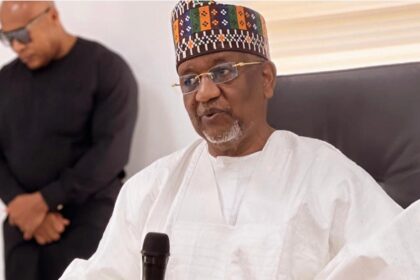Gambian leader Yahya Jammeh said Saturday he would step down to keep peace in his country after 22 years in power, following last-chance talks with west African leaders before a military intervention.
Jammeh spent hours with Guinea and Mauritania’s presidents on Friday in Banjul, where agreement was reached that he would hand power to Adama Barrow, the declared winner of elections last month.
“I have decided today in good conscience to relinquish the mantle of leadership of this great nation with infinite gratitude to all Gambians,” Jammeh said in a statement broadcast on state television.
The leader declared his decision to leave office — after weeks of stalling through threats and legal action — was his alone, despite immense pressure from the international community.
However, agreement was not reached on where he would spend his life after his presidency.
“My decision today was not dictated by anything else than the supreme interest of you the Gambian people and our dear country,” Jammeh said in his speech, thanking Gambians for their support.
“At a time when we are witnessing trouble and fears in other parts of Africa and the world the peace and security of the Gambia is our collective heritage which we must jealously guard and defend,” he added.
His actions will be carefully monitored in the hours and days after the declaration, as he has said once before he would step down and recognise Barrow as the winner, just after the election.
Troops from five African nations are stationed on the tiny west African nation’s borders in the event Jammeh does not keep his word, and it was thought Conde would stay into Saturday to iron out remaining disagreements.
The Gambian strongman did not mention any future plans in the state television address, meaning these details may have yet to be decided.
“Jammeh has accepted he will leave power. The discussions revolve around where he will live in exile and the conditions around that,” a Mauritanian source close to the delegation in Banjul told AFP.
A highly-placed Guinean source said the country of exile had to be far enough away to stop Jammeh interfering in his country’s affairs.
The Guinean source mentioned Equatorial Guinea as a possible option, while diplomats discussed the possibility of Morocco.
Isatou Touray, a top official in Barrow’s coalition, told AFP there was “no deal yet” late on Friday.


